This article originally appeared on Crossfader.
America has been at war without interruption for the virtual entirety of my conscious life. After so many broken promises to end the conflict, it feels impossible to believe that a truce is near. Starting a fight can take courage, but resolving one takes a hell of a lot more. Once conflict becomes a comfortable rhythm, it’s hard to remember how to live without it, and it seems like America has forgotten. THE PUNISHER dives into the American addiction to war, exploring the intoxication of conflict and the fiction of establishing good guys and bad guys. Each ex-military character becomes both an allegory for America’s addiction to war and a very real depiction of the soldiers who return from war drained of purpose and optimism.
THE PUNISHER begins after Frank Castle (The Punisher) has achieved his last mission: killing each and every person he believes had a part in the massacre of his wife and two children. Directionless, Frank considers joining a veterans’ support group, but cannot muster the courage to do so. Hovering outside the room of struggling veterans, Frank hears Lewis, a young member of the group, recently returned from his deployment the Middle East, speaking about the indifference of the government towards its own military veterans. He says, “I fought for this country, and there’s no place for me. I don’t know what the rules are anymore.” Then, Lewis quotes three of the most well-known murderers in history: Sic semper tyrannis. These are the words uttered by John Wilkes Booth after shooting Lincoln and words seen on the T-shirt in which the Oklahoma City Bomber was arrested. They apocryphally originate from an utterance by Brutus during the assassination of Julius Caesar and have been used by movements against government tyranny across many Western societies. When challenged, Lewis replies that, “All I know is that we risked our lives and we did terrible things and it meant nothing when we got home,” an ominous statement that sets the dark tone that only deepens through the rest of the series.
For older viewers, Lewis may be recognizable as a nearly exact replication of the Oklahoma City Bomber, Timothy McVeigh. A young, white, military veteran (McVeigh was only 27 when he bombed the Alfred P. Murrah Federal Building, killing 168 people and injuring over 680 others) with a tendency to blame others for his problems and who believes the government has committed treason against the people of the United States by taking advantage of the citizens and making flippant promises with no intention of keeping them.
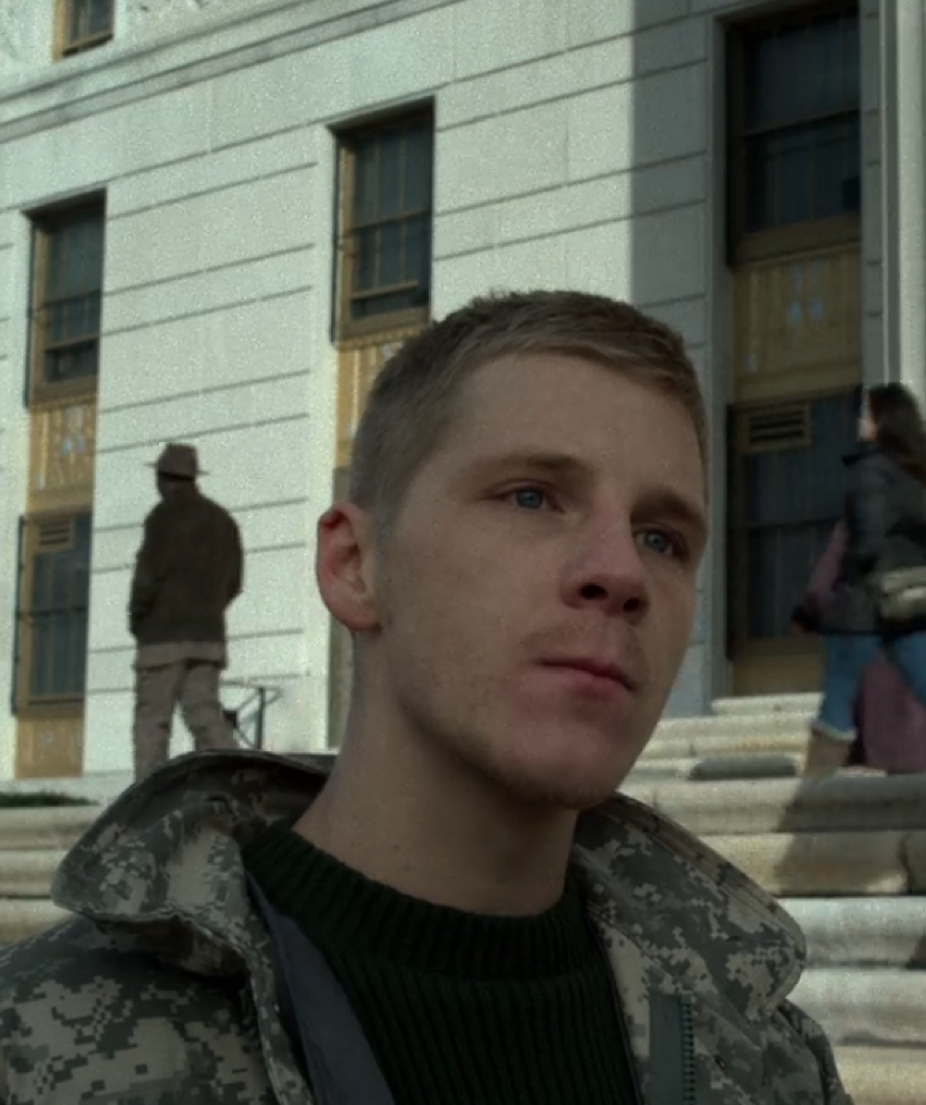

A spitting image
At the beginning of the season, Lewis seems to be a peripheral character, a symbol of all the veterans having trouble adjusting back into life at home. But when Lewis proceeds to blow up three government buildings midway through the season, he provides an essential lens through which we must view our protagonist’s—The Punisher’s—actions. Lewis directly references The Punisher in a letter he writes to Karen Page (a journalist introduced in DAREDEVIL) about the bombings, saying that she has stood up for the common hero in the past, even if the law didn’t agree with them. This troubles Karen, but she insists there is a difference between the two men. But when compared to Frank’s actions, it’s very difficult to draw clear distinctions between the them. Even Karen says, “Bad things happen to people every day, but that doesn’t mean they become murderers.” Karen defended Frank throughout his trial in which he was being tried for 37 murders (of “bad” guys), but this statement would seem to implicate Frank just as much as it does Lewis, pointing out the questionable morality of The Punisher’s code.
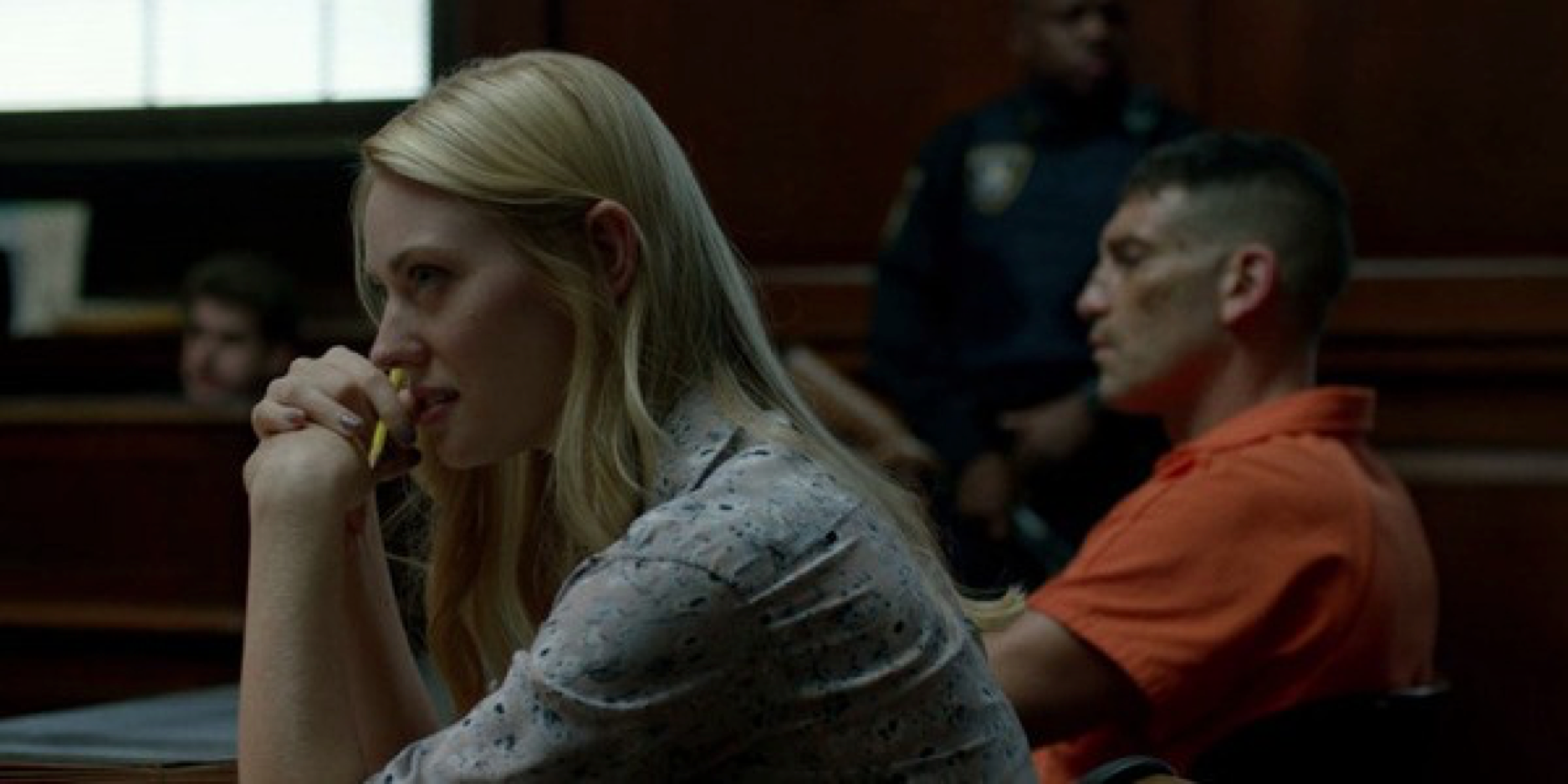
MAKING A MURDERER Season Two went to some dark places
THE PUNISHER expertly uses juxtaposition to point out hypocrisy again and again. Set in New York, it is impossible to divest THE PUNISHER and Lewis’s actions from New York’s history of terrorist attacks, especially those of September 11th. Before the 9/11 attacks occurred, the Oklahoma City Bombings was the most deadly act of terrorism on American soil, and the perpetrator was American. Lewis’s attack in THE PUNISHER is clearly meant to be a replication of that attack. THE PUNISHER reminds us that domestic terrorism is equally—well, actually, more deadly—than foreign terrorism, and yet, Congress does nothing on the domestic front while it leaps into action at the slightest international provocation. Just as soldiers like McVeigh or the fictional Lewis only know how attempt to affect change through violence, so too does Congress.
But this series is supposed to be about The Punisher, not some copycat, you say. Well that’s true, but this is the smartest way they could advance The Punisher’s story and character after a pretty complete ending to his story at the conclusion of DAREDEVIL’s second season. When The Punisher has no one left to Punish, who does he become? Though he certainly does some well-deserved Punishing during this season, attempting to thwart Lewis and talk him down from his vendetta is The Punisher’s first step on a path to peace (though we all know that’s a few seasons away).
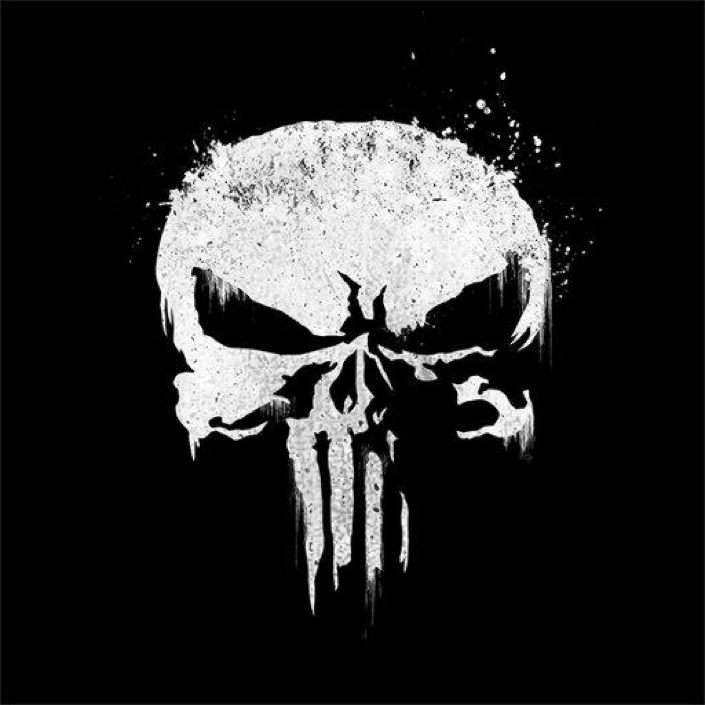
Aww, let’s turn that frown upside down!
And like many soldiers returning from war, another step The Punisher must take is to face and come to terms with the terrible things he did while overseas. When Frank finally exposes the crimes that he and others committed in Afghanistan to Agent Madani, a determined Homeland Security agent intent on getting to the bottom of suspicious activity in Kandahar, he is finally able to face the veterans’ support group he’s never had the courage to join before. Though THE PUNISHER is extremely violent, with gunfights and torture throughout, its core is Frank turning from his path of anger and revenge to another that leads to a permanent relinquishing of his weapons.
This version of The Punisher is a perfect distillation of where the U.S. is today. While it still includes the classic “bad guys get what’s coming to them” badass massacres, it doesn’t let the story end there. MARVEL’S THE PUNISHER continues the story, asking essential questions that perhaps should have been raised before murdering so many people. Is murder wrong, no matter who you’re killing? In this series, The Punisher faces this question. Perhaps it’s time for America to do the same.
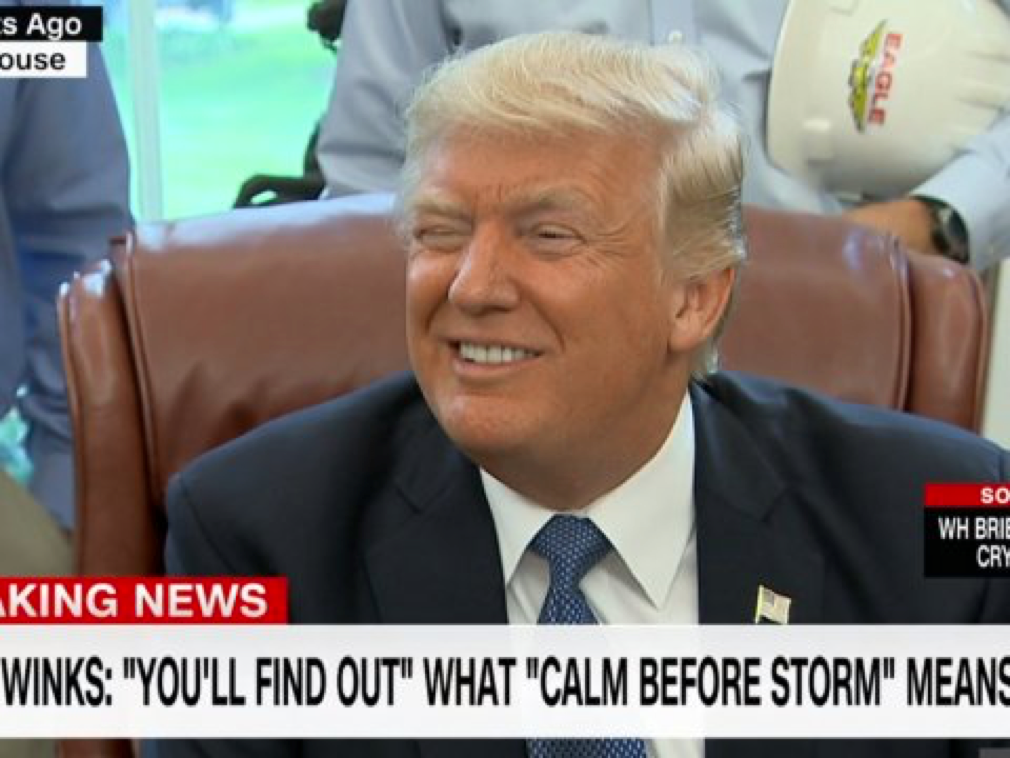
Seems unlikely, though
This season could have easily become a glorification of violence but it is the opposite. The gratuitous, horrifying violence is unrelenting and extraordinarily gory. There is no way to watch the entire season without categorically seeing it as upsetting, no matter the justification. THE PUNISHER has the strongest thematic footing of all Marvel properties and it benefits tremendously from such a clear foundation. While telling an incredibly specific story, THE PUNISHER crafts a narrative that includes each and every one of us living in the country today. So if you can stomach the gore and brutality, exploding blood and shredded faces, it’s definitely worth the watch and the inevitable reflection afterwards: THE PUNISHER is a different type of superhero story and one that America as a whole would benefit from examining.
Verdict: Recommend


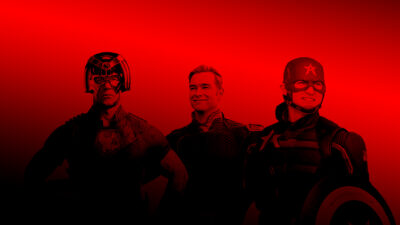



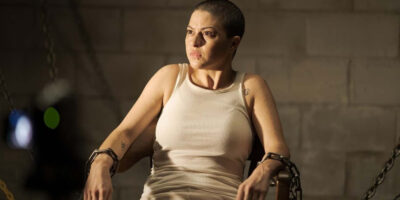




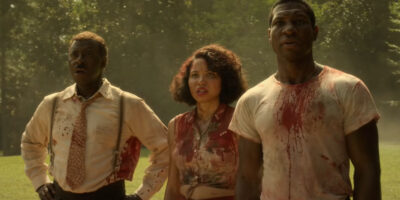
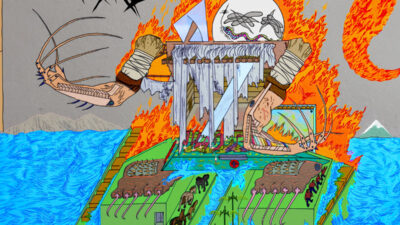



Comments